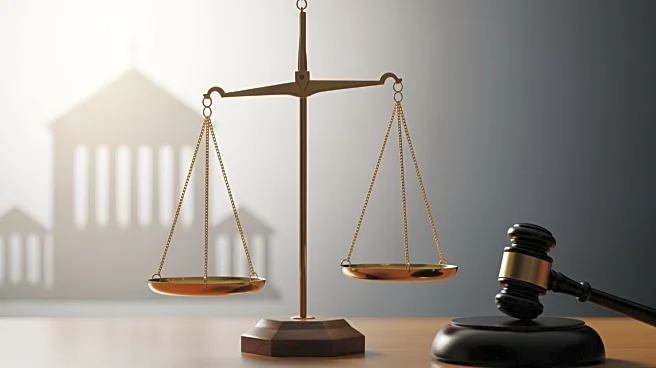What's Happening?
Former FBI Director James Comey has filed a motion to dismiss criminal charges against him, arguing that the U.S. attorney responsible for the case was unlawfully appointed. Comey claims that the charges are a result of President Trump's personal vendetta
against him. The charges include making false statements and obstructing a congressional investigation, allegedly related to an FBI employee disclosing information about a federal probe. Comey's legal team argues that the prosecution is both vindictive and selective, driven by Trump's desire to retaliate against his critics. The case is being heard by U.S. District Judge Michael Nachmanoff in Alexandria, Virginia, with a trial date set for January.
Why It's Important?
The case against James Comey highlights ongoing tensions between former President Trump and his critics, raising questions about the use of prosecutorial power for political purposes. If Comey's motion is successful, it could set a precedent regarding the limits of presidential influence over the Department of Justice. The outcome may impact public trust in the impartiality of federal prosecutions, especially in politically sensitive cases. Additionally, the case underscores the broader implications of political retribution and its potential to undermine the rule of law.
What's Next?
Judge Nachmanoff has indicated that the motion regarding the validity of the U.S. attorney's appointment will be decided by a judge in another jurisdiction to avoid conflicts of interest. The decision on this motion could significantly affect the progression of the case. As the trial date approaches, both legal teams are likely to prepare for a contentious legal battle, with potential implications for other cases involving Trump's political adversaries.
















